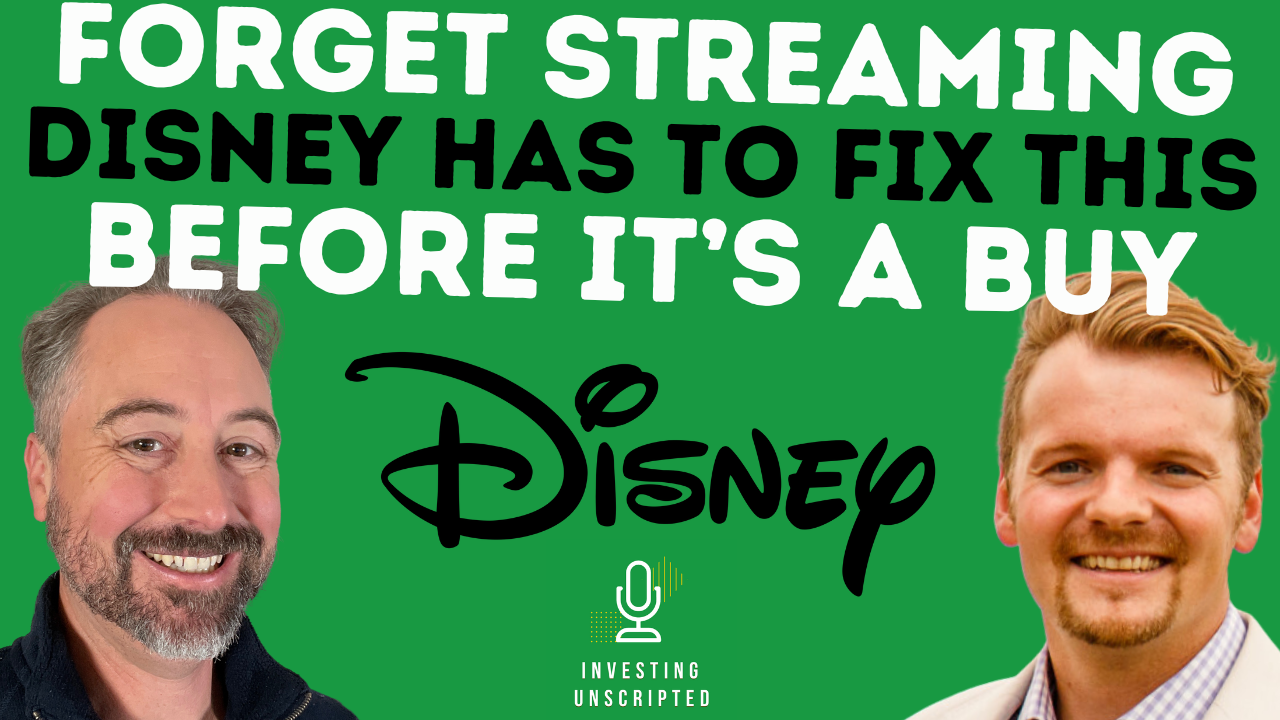Companies offering solutions that have permeated our lives so fully we don't even realize we're happy customers can make terrific investments. Some of these companies, such as Disney (DIS +4.06%), market products that are better known than others, while others are running considerably more under the radar, such as MongoDB (MDB 5.45%) and Twilio (TWLO +1.67%). Read on to discover:
- Why you don't have to visit its theme park to love Disney;
- What MongoDB is doing to make information more useful; and
- How Twilio's software helps you take advantage of the best apps for your devices.
The mouse in nearly every house
Nicholas Rossolillo (Disney): OK, so you've likely heard of this one. Disney is one of the most recognizable brands on the planet. But it's worth a refresher on just how pervasive an entertainment company Disney actually is and how much more ingrained it could become in the world.

IMAGE SOURCE: GETTY IMAGES.
First, there's the recently completed takeover of Twenty-First Century Fox, which adds a slew of movie and TV franchises to an already-formidable lineup that includes Marvel, Star Wars, and Pixar. The two movie studios combined owned six of the top 10 highest-grossing box-office hits in 2018, and it's likely to have a repeat performance in 2019. The creative content powerhouses give Disney incredible sway over the global movie theater industry, not to mention plenty of material to use in its theme parks and consumer merchandising segments.
If films, resort vacations, and toys aren't things your family makes regular use of, perhaps TV networks are. Disney owns the ESPN cable channel and the ABC broadcasting channel. The Fox cable and broadcasting stations are also now part of the family -- although the Fox sports network had to be spun off as part of the deal to acquire the rest of the company. However, one under-the-radar TV asset that came with the Fox takeover was National Geographic. Disney plans on making that a key part of its streaming TV ambitions in the years ahead.
Speaking of streaming platforms, online TV platforms like Hulu (which Disney now owns two-thirds of, with the remaining 30% ownership going to Comcast for now), ESPN+, and the upcoming Disney+ will also put Disney into millions of households. Plus, the breadth of Disney's entertainment assets means it will have plenty of content to fill up its library that appeals to all sorts of consumers.
With such a broad and diverse stable of subsidiaries covering everything from feature film events to toys and apparel to TV and internet entertainment, there's a good chance you're sending money Disney's direction on a daily basis. For that reason, it's worth making Disney a core holding in any investment portfolio.
The little database that could
Anders Bylund (MongoDB): Most people don't give a second thought to the technologies at the back end of their daily routine. Many of the things you do simply wouldn't be possible without a database managing all the information that's required. In particular, MongoDB is a leading provider of easy-to-use NoSQL databases, which are perfect for collecting massive amounts of data from real-world sensors or user inputs, then organizing it all into a searchable business-grade data store.
The lightweight structure of MongoDB's eponymous database product also makes it ideal for young, fast-growing businesses. Extending a traditional SQL database takes detailed planning and highly trained database administrators who also tend to draw big salaries. NoSQL systems are much simpler to manage, and your upstart company's team of administrators can be far smaller without hampering your internal and/or user-facing apps.
With more than 13,000 customers under MongoDB's belt, it would be impossible to give you a full listing here. The client roster holds quality to match that huge quantity, including lots of household names. Comcast's NBCUniversal is replacing its Oracle systems with more flexible MongoDB databases across its business, from account management to content production and broadcast scheduling. Financial giant Intuit uses MongoDB for tax preparation services and financial analysis. The Weather Channel loves how MongoDB powers "rapid innovation cycles" and quick development of new and improved services.
The list goes on, touching any industry you'd care to mention. This broad-based success shows in MongoDB's results. Revenues are nearly doubling on an annual basis, and MongoDB often beats Wall Street's earnings estimates as the company climbs closer and closer to profitability. Investors are taking notice, nearly quadrupling share prices over the last 52 weeks.
Not bad for a little company you rely on all the time, without ever knowing it.

IMAGE SOURCE: GETTY IMAGES.
Enabling 21st-century communication
Todd Campbell (Twilio): If you're communicating through an app with a business, such as Lyft, StubHub, or Airbnb, you're using technology enabled by Twilio.
Twilio provides software developers with a simple-to-use platform that allows them to embed communication features in their apps, including voice, text, chat, video, and email. The company boasts over 64,000 active customers -- up from 49,000 one year ago -- and growing use of in-app communication has translated into soaring sales.
Revenue surged 63% year over year to $650 million in 2018, including a 77% year-over-year increase to $204 million in the fourth quarter. That growth didn't all come from new accounts, either. Its net expansion rate, which measures customer revenue today relative to the past, was an enviable 147% in the quarter, suggesting existing accounts are finding new ways to incorporate its solutions into their businesses. For perspective, Twilio's net expansion rate was 118% in Q4 2017.
In 2019, management thinks it can deliver organic revenue growth of 40% and total revenue of about $1.06 billion. The company isn't consistently profitable yet, but management said on its conference call that it should deliver non-GAAP operating profits beginning in the second quarter. Since Gartner predicts 85% of customer interactions will be handled without a human by 2020, the future appears bright for Twilio.








